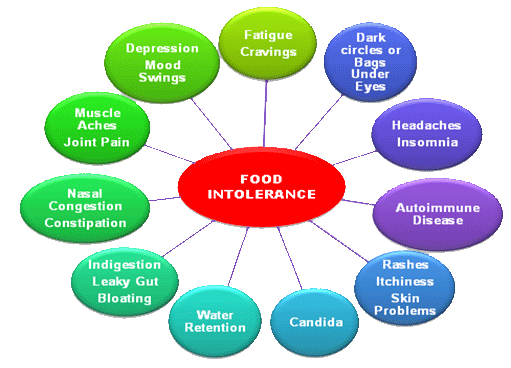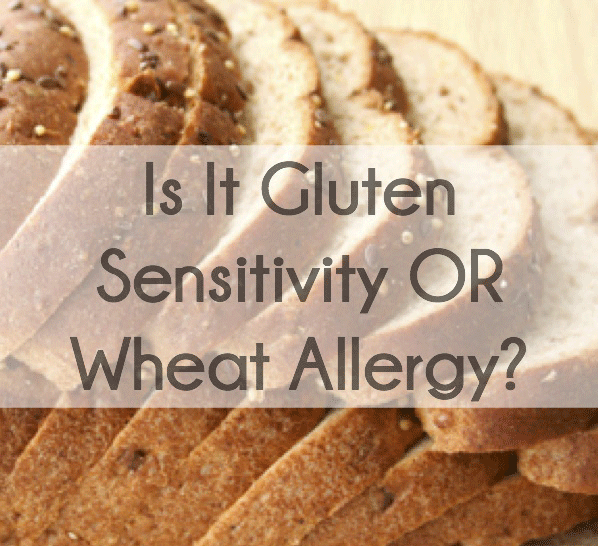Aloha Health Clinic
Alvita Soleil, O.M.D., L.Ac., NCCAOM
Doctor of Oriental Medicine
808-896-1008
Working with Allergies and Sensitivities
Content:
Food reactions can be classified as:
- Hidden Symptoms not obvious.
- Immediate Symptoms obvious and immediate.
- Adverse Symptoms unpredictable but negative
- Delayed Symptoms may take several hours to a few days.
- Thermal Symptoms occur when eating a particular food followed by exposure to cold and heat.
Immediate reactions are generally mediated by an antibody known as IgE. These types of antibody bind the offending food antigens and cause the release of cytokines and histamines which results in symptoms such as:
• Wheezing
Wheezing
• Hives, Eczema, skin rashes
Hives, Eczema, skin rashes
• Closing of the throat
Closing of the throat
• Rhinitis
Rhinitis
• Respiratory disorder
Respiratory disorder
• Asthma
Asthma
• Swelling of the lips and face
Swelling of the lips and face
• Even anaphylactic shock
Even anaphylactic shock
Appendix A - Other Common Causes of Allergies
- Chemicals in Personal Care Products, Water, or Environment
- Chronic Infections
- Work and Home Environment: mold, chemicals, electromagnetic frequencies, geopathic stress
- Dental Issues: root canals, infection, mercury fillings
- Heavy Metals from smoking and other exposure
- Pregnancy: A pregnant mother’s exposure to allergens and breast feeding by a mother who consumes allergens can increase a baby’s odds of being allergic.
- Early Infant Feeding: Right after birth, a baby’s organs are not fully formed. This includes their immune system and digestive tract. So when a baby ingests difficult-to-digest proteins (such as wheat, cow’s milk, cereal, corn, eggs and meat) they make their way into the bloodstream and alert the immune system, which then results in sensitivities.
- Immunizations: Immunizations impair the immune system. A correlation has been seen between required immunizations and incidences of allergy and asthma. Childhood illnesses like measles, mumps and whooping cough, actually decrease the incidence of allergy. Vaccines activate the humoral branch of the immune system, which is involved in making antibodies that attach to antigens. This branch of the immune system does not discharge the pathogens from the body or protect the child against future illness. Illnesses like measles and mumps, on the other hand, provide cell-mediated immunity, which removes the contents from the body and protects the child from future illnesses.
- Candida Infection: Yeasts penetrate the protective barrier of the intestinal tract and invades the circulatory system. They then release waste chemicals (toxins) and in the process, allow undigested food proteins and other toxins to enter the body. These and other foreign substances assault the immune system, leading to tremendous allergic reactions, fatigue and other health problems.
- Parasites: Parasites tend to live in the intestines where they cause extensive damage. They may also migrate to the blood, liver, lymph, heart, gall bladder, pancreas, spleen, eyes and brain. They release toxins that damage tissue in the gastrointestinal tract and, over time, exhaust the immune system.
- Pancreatic Enzyme Deficiency: Pancreatic insufficiency plays a major role in many cases of food allergies, particularly if a person has multiple allergies. While starch and fat digestion can be carried out satisfactorily without the help of pancreatic enzymes, the proteases are critical to proper protein digestion.
- Low stomach acid: Hydrochloric acid is needed to make pepsin required for digestion.
- Insufficient Mucus: Insufficient mucus in the nose, sinuses or respiratory passages can allow a substance such as pollen to come into direct contact with the membrane and irritate it enough so that it is absorbed into the bloodstream and sensitization occurs. The mucus membranes can be protected by adequate fluid intake, saline and herbs such as slippery elm.
- Break in the Skin: Any break in the skin that compromises the skin barrier may cause sensitization to even common items such as cosmetics, eyeglasses, jewelry, perfumes, deodorants, sunscreen, organisms and others. The skin is a protective organ and normally prevents dangerous substances from entering the body. But when it gets irritated by dry conditions, sunburn, cuts, abrasions, acne or chemicals, it is no longer able to “remember” which substances are bad or good. People then can become sensitized to what touches damaged skin most frequently. Hormone irregularities, stress and deficiencies in fatty acids can impair the skin’s repair process and lead to allergies.
- Toxicity: We regularly come across a multitude of toxins which can deplete pancreatic enzymes and overburden the immune system, leading to more allergies. When the key detoxification organs become unable to fully detoxify themselves or the body, a pattern of chronic allergies may develop in which the immune system attacks itself. This state of heightened allergic reactivity makes the immune system hyperactive and it becomes overtaxed. Our bodies also produce endotoxins which get involved with this process too. They include Uric acid, Lactic acid, Homocysteine, Nitric oxide, Cellular debris from microorganisms and intestinal toxins like Indole, Skatole, Putrescine, Cadaverine, Spermadine and Spermine.
- Alcohol: Even moderate consumption of alcohol can increase the likelihood of developing allergies because it reduces the secretion of hydrochloric acid in the stomach. When this happens, unfriendly intestinal bacteria will flourish; the digestive tract will become more alkaline, deactivating an enzyme called delta-6-desaturase, which is necessary for the production of anti-inflammatory prostaglandins.
- Inability to Metabolize Linoleic Acid: Inability to metabolize linoleic acid to gamma-linoleic acid because of delta-6-desaturase inactivity can result in allergies as described above. This can be a result of aging, stress, zinc deficiency, magnesium deficiency and sunlight.
- Dehydration: Histamine plays a role in the redistribution of water. When water is in short supply, histamine becomes more active, which can instigate allergies.
- Weak Adrenal, Thyroid, and Pancreas: These glands support our barriers and provide energy to the immune system, so when they’re down more allergies can result.
- Sugar Consumption: Insulin has a less well-known job of transporting vitamin C into the body’s cells. Because sugar takes precedence over vitamin C, a high sugar diet means less vitamin C gets into the cells. This results in decreased phagocytes and white blood cells, impairing immunity. High insulin levels also lead to pro-inflammatory prostaglandins by inhibiting the absorption of good fats.
- Hormone imbalance
- Post traumatic disorders
Resources:
Krohn, Jacqueline, Francis A.Taylor, Erla Mae Larson. Allergy relief and prevention, A doctor’s complete guide to treatment and self- care. Hartlet &Marks Publishers
Kail, Konrad. Allergy Free.
Nambudripad, D.S. Say Good-bye to Illness, 3rd Edition. Buena Park, CA: Delta Publishing, 2002.
Randolph, Theron and Ralph Moss. An Alternative Approach to Allergy. New York: Bantam Books, 1982.
Pancreatic enzymes Micheal T, Murray ND articles/view/16437
*NOTE: Bio-Energetic Assessment does not provide a medical diagnosis and is not covered by insurance. If patients suspect that they need medical intervention, they should consult their physicians who can provide medical diagnoses and prescribe appropriate treatment regimens. The Bio-Energetic Scan testing is done for research or educational purposes only and does not involve diagnosing or curing.
Food Sensitivities: There is increasing evidence that food sensitivities are more common than previously thought and have a wide and varied impact on health. Food sensitivities may cause fatigue, gas, bloating, mood swings, nervousness, migraines and eating disorders. These symptoms which are less often associated with the consumption of food are more difficult to diagnose and trace back to food, as symptoms may be delayed for up to two days after a food has been consumed.
Today, 32,000 chemical substances are routinely added to our food. In general, people’s problems with food are the result of toxic responses and are divided into two categories: allergic responses and food sensitivities.
Food Allergies: Food allergies are defined as toxic reactions to foods that involve the immune system. The immune system is most active in the areas of the body that have some direct contact with the outside world such as the skin, lungs, nose and gastrointestinal tract. The majority of potentially harmful molecules enter the body through the intestinal tract, so it’s not surprising that over 60% of immune activity occurs in the intestines. The most common symptoms for food allergies include vomiting, diarrhea, blood in stools, eczema, hives, skin rashes, wheezing and a runny nose. Symptoms can vary depending upon many variables including age, the type of allergen, and the amount of food consumed. Acute allergic reactions can result in anaphylactic shock (difficulty in breathing), which is a true medical emergency.
A delayed food reaction is also usually mediated by IgG antibodies, and most food allergies fall into this category. This type of allergy is frequently untreated and misdiagnosed. Food allergy testing is paramount in this situation. Symptoms include:
• Chronic frequent headache
Chronic frequent headache
• Chronic indigestion
Chronic indigestion
• Heartburn
Heartburn
• Fatigue
Fatigue
• Depression
Depression
• Joint pain, arthritic symptoms
Joint pain, arthritic symptoms
• Recurrent abdominal pain
Recurrent abdominal pain
• Canker sores
Canker sores
• Chronic respiratory symptoms (wheezing, bronchitis)
Chronic respiratory symptoms (wheezing, bronchitis)
• Nocturnal enuresis
Nocturnal enuresis
• Colitis
Colitis
• Diarrhea
Diarrhea
• Constipation
Constipation
An adverse food reaction can also be caused by small molecules other than proteins or peptides. When a person experiences symptoms from an allergen food, partial relief may be obtained by eating the same food again. Other people may have cravings for problematic foods, and report they feel better when they eat them. This phenomenon is an allergy/addiction combined with a masked food allergy.
Symptoms include:
• Constant postnasal drip
Constant postnasal drip
• Afternoon headache
Afternoon headache
• Sleepy spells or “spaciness”
Sleepy spells or “spaciness”
All foods can cause reactions. Protein foods are more allergenic than non-protein foods because they are more difficult to digest than fats or carbohydrates. If protein digestion is not complete, the molecule absorbed in the blood-stream is too large. The immune system recognizes the large molecule as a foreign substance rather than a nutrient and sets up a chain of reaction to destroy the supposed invader.
With inadequate protein breakdown, an amino acid deficiency can result. The consequences may be that the body finds it difficult to produce adequate amount of enzymes, hormones, antibodies, and immune factors.
The most common food allergens are:
• Eggs (especially egg-white)
Eggs (especially egg-white)
• Dairy products
Dairy products
• Wheat
Wheat
• Soy
Soy
• Sugar
Sugar
• Shellfish (crab, lobster and shrimp)
Shellfish (crab, lobster and shrimp)
• Fish (such as bass, cod and flounder)
Fish (such as bass, cod and flounder)
• Corn (maize)
Corn (maize)
• Nuts
Nuts
• Peanuts (ground nuts) and tree nuts (almond, cashew and walnuts)
Peanuts (ground nuts) and tree nuts (almond, cashew and walnuts)
• Corn
Corn
Medical definition of allergy: “a reaction to an otherwise harmless substance, food or environment, that results in an immune system response”. Even the smallest quantity of a certain substance can cause an allergic reaction.
The medical model: Antigen and Antibody. According to the traditional medical view, an allergy develops as a result of repeated or excessive exposure to a specific substance, called an antigen. Allergies are hypersensitive immune responses to antigens/allergens that enter or come in contact with. In response, the body produces proteins known as antibodies which specifically match the antigen in question. When the body is exposed to the antigen, it produces huge quantities of the corresponding antibody, which lock onto the antigen molecules, triggering chemical reactions in the body's cells to disable or destroy the antigen. These chemical reactions are responsible for allergic reactions.
Types of Allergic Reactions
What are Allergies?
Allergies vs Sensitivities
Food Sensitivity refers to an immune response ranging from a minor irritation to an extreme reaction. The substance, which is generally non-threatening, is viewed by our body as a threat to our general well-being. Food sensitivities cause a wide number of symptoms resulting from a typical leaky gut reaction. When the intestinal lining is damaged food molecules enter the bloodstream through damaged mucosal membranes. The body recognizes these molecules as foreign substances (antigens) and trigger an immune reaction to eliminate them. Prolonged antibody response overwhelms the liver’s ability to eliminate the antigens, so the toxins enter the bloodstream and trigger delayed hypersensitivity response, inflammation, cell damage and disease.
When a person comes into contact with an allergen, the allergic reaction is not immediate. The immune system gradually builds up sensitivity to the substance before overreacting to it. The immune system needs time to recognize and remember the allergen. As it becomes sensitive to it, it starts making antibodies to attack it. This process is called sensitization. Sensitization can take from a few days to several years..
Most Common Food Allergies
Other Common Causes of Allergic Reactions
- Chronic stress Prolonged stress changes the immune system’s ability to respond quickly and affect our ability to heal.
- Genetic Factors which predispose people to allergies.
- Bowel, Digestive Weakness, Leaky Gut Syndrome: Inflammation in the gastrointestinal mucosa, causes the wall to becomes permeable. This is called leaky gut syndrome. The main causes of leaky gut and digestive dysfunction are parasites, enzyme and hydrochloric acid deficiency, early introduction of foods, intestinal dysbiosis and alcohol ingestion.
- Weakened Immune System
- Poor food choices
- Medications: Antacids, anti-ulcers, steroid meds and oral contraceptives are alkalizing. They can impair the stomach acid’s ability to break down food molecules, and some (like antibiotics) increase Candida growth.
For additional causes, see Appendix A.
Appendix








